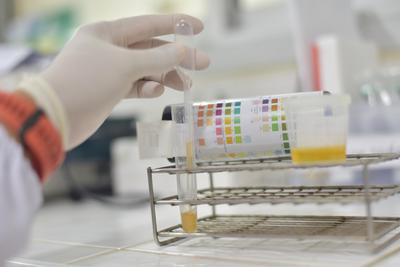Caught Off Guard For a Random Drug Test? Here's What You Need To Know
So, you've just been informed about a random drug test at work. What now? Random drug testing is more common than you might think, spanning various industries from transportation and construction to healthcare and corporate offices. In this blog, we will help you understand what it is, what it entails, why it's important, the legal aspects, and best practices.
If your company needs help with employment drug testing, look no further. Health Street is a trusted partner in the field. Register online or call us at (888) 378-2499.

What is random drug testing?
Employers use random drug testing to screen employees for drug use randomly, unlike pre-employment or post-accident drug tests, which are conducted under specific circumstances. They aim to deter employee drug use and ensure a safe working environment.
What shows up on random drug testing?
Random drug testing typically screens for a variety of substances, including marijuana, cocaine, amphetamines, opiates, and phencyclidine (PCP). However, it depends on the type of drug panel that is selected. Health Street offers comprehensive employment drug testing options to meet the specific needs of your company and industry.
Why is random drug testing important?
Random drug testing can help employers with the following:
Random drug testing laws and requirements
Employers must follow federal, state, and local workplace drug testing laws. These laws cover privacy, consent, and discrimination when implementing random drug testing programs, as well as industries that must conduct drug testing and the regulations they must adhere to.
Best practices for random drug testing in the workplace
If you're considering rolling out random drug testing, here are some tips to help do it right:
Health Street as Your Employment Drug Testing Partner
Health Street offers a comprehensive drug testing selection to meet each employer's specific needs. We have over a decade of experience in drug testing and thousands of clinics nationwide. If you need a reliable drug testing partner, register online or call us at (888) 378-2499.
Frequently Asked Questions
What happens when someone fails random drug testing?
It depends on the industry and state laws. Some companies may discipline or terminate employees who fail, while others might offer rehabilitation or counseling.
How often should random drug testing be done?
The frequency of random drug testing varies by industry, company policy, and regulatory requirements. Typically, it ranges from quarterly to annually, with some industries requiring more frequent testing.
How does selection for random drug testing work?
Employees selected for random drug testing are chosen through a neutral, random selection process. This ensures that every eligible employee has an equal chance of being tested, promoting fairness and compliance with regulations. Need help ensuring your random pool is set up correctly? Consider registering for our DOT Random Pool.
Does the DOT do random drug tests?
The Department of Transportation (DOT) requires random drug testing in safety-sensitive positions, such as pilots, commercial drivers, and railway workers. DOT regulations outline specific requirements for testing frequency, procedures, and substances tested.






